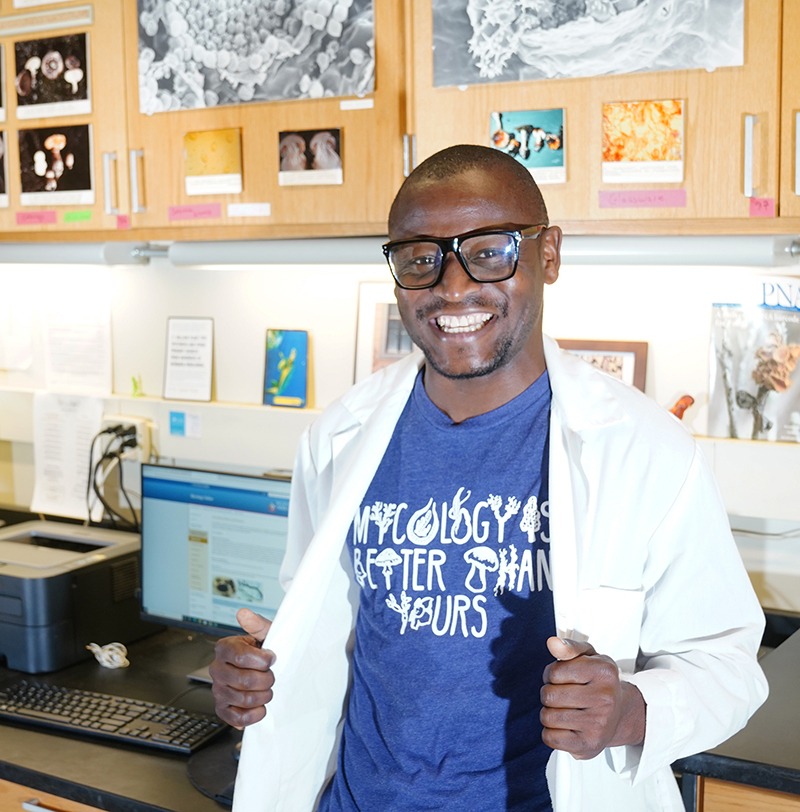The student
Blaise Jumbam had long been interested in studying biology, but his uncles in his hometown of Bamenda, Cameroon, urged him to pursue banking. Jumbam gamely tried finance at the University of Dschang before switching to botany at the University of Buea. “I became very interested in forestry,” he says. “Being in the heart of the Congo Basin, I came to understand its importance to us as a country and was curious to do studies in that area.” After earning his undergraduate degree, he worked on a research project involving tropical forests at the Korup National Park and taught biology in high school before returning to his university for a master’s degree. His award as the top graduate in his class convinced his uncles that he’d chosen the right field: “When they saw that I exceled, they said, ‘Truly, we should have let him do what he wants to do,’” Jumbam says. He then worked as an agroforestry technician before joining the Institute for Research and Agriculture Development as an assistant researcher on forest soils and botanical collections at the National Herbarium of Cameroon in its capital of Yaoundé. There, in late 2016, he met Cathie Aime, professor of mycology and director of the Purdue Herbaria. As they discussed Jumbam’s interests, Aime floated the idea of his becoming part of her lab team at Purdue. “This was a golden opportunity,” he says. “We don’t have the infrastructure in Cameroon to do quality research and it was always at the top of my mind to find contacts abroad.” When a position came open, Jumbam joined Aime’s lab in May 2018.
The research
Jumbam conducts research in applied mycology, exploring fungal biocontrol of cyst nematodes. “I am looking at fungi candidates that we can use to control potato and soybean nematodes in the U.S.,” he explains. “These biological controls are alternatives to fungicides that have been banned.” Most of his work occurs in the lab, where he grows fungi and tests them on different life stages of the nematodes. He hopes his results will help farmers in his home country better control pests with fewer expensive chemicals.
Opportunities
Jumbam says he most appreciates Aime’s confidence in her graduate students and the welcoming atmosphere and diversity of her lab. “We have people from almost every continent,” he notes. Jumbam has presented his research to varied audiences and in July received the award for best graduate student poster at a joint Mycological Society of America/Botany Society of America meeting. He predicts that the skills he has acquired at Purdue in genome sequencing and grant writing will be especially important in his future.
Future plans
Jumbam expects to graduate in summer 2022. “My plan for now is to head back home and share my experiences with others who may want to go to graduate school, so they can know where to go to get a quality education,” he says. “I’m open-minded,” he adds about his future. “Where other opportunities may come from will determine where I end up.” Outside of the lab, he enjoys playing soccer, singing and playing the ukulele, watching television series, and listening to news programs.
